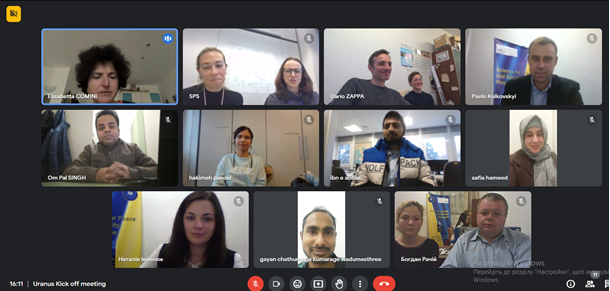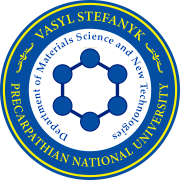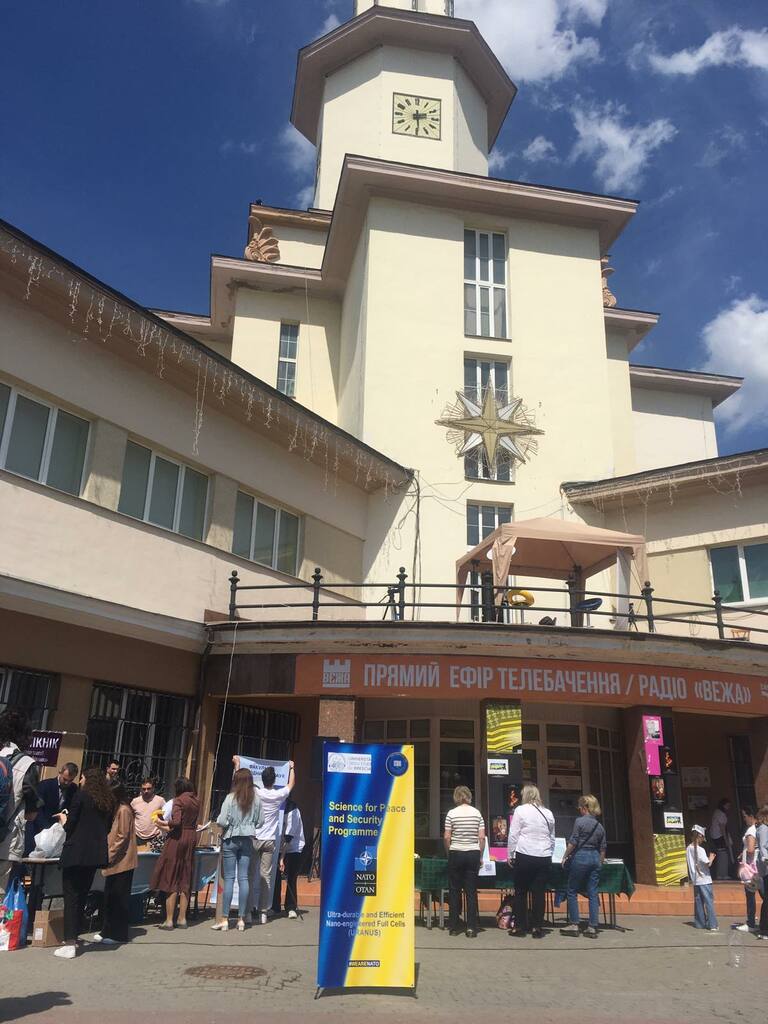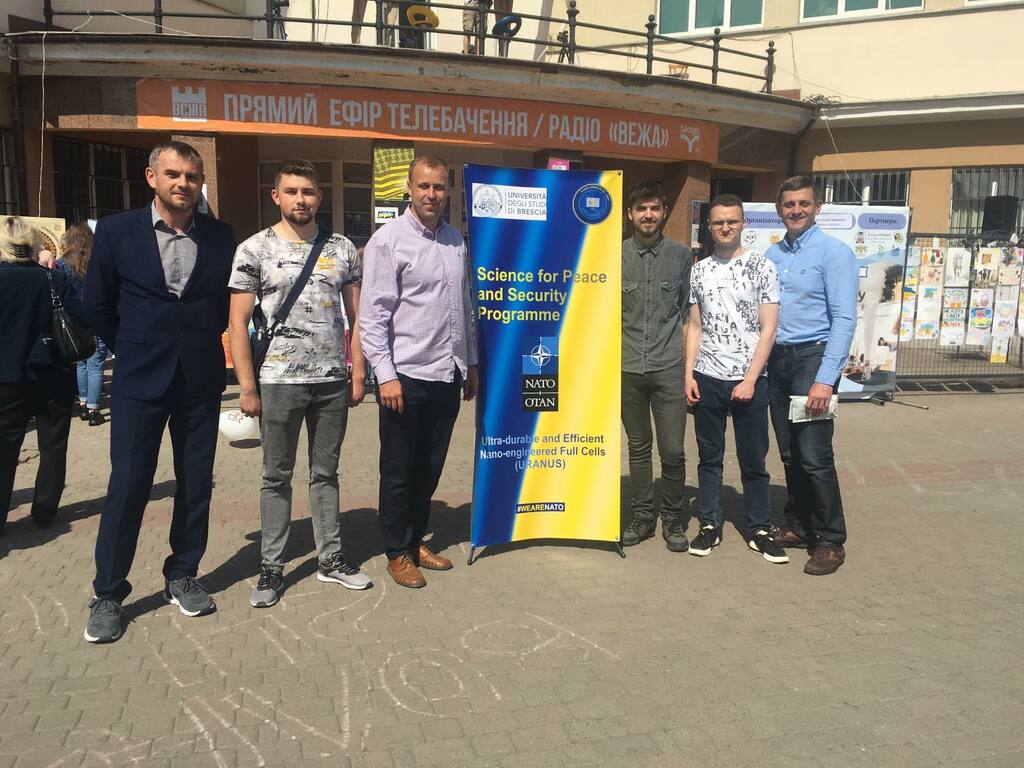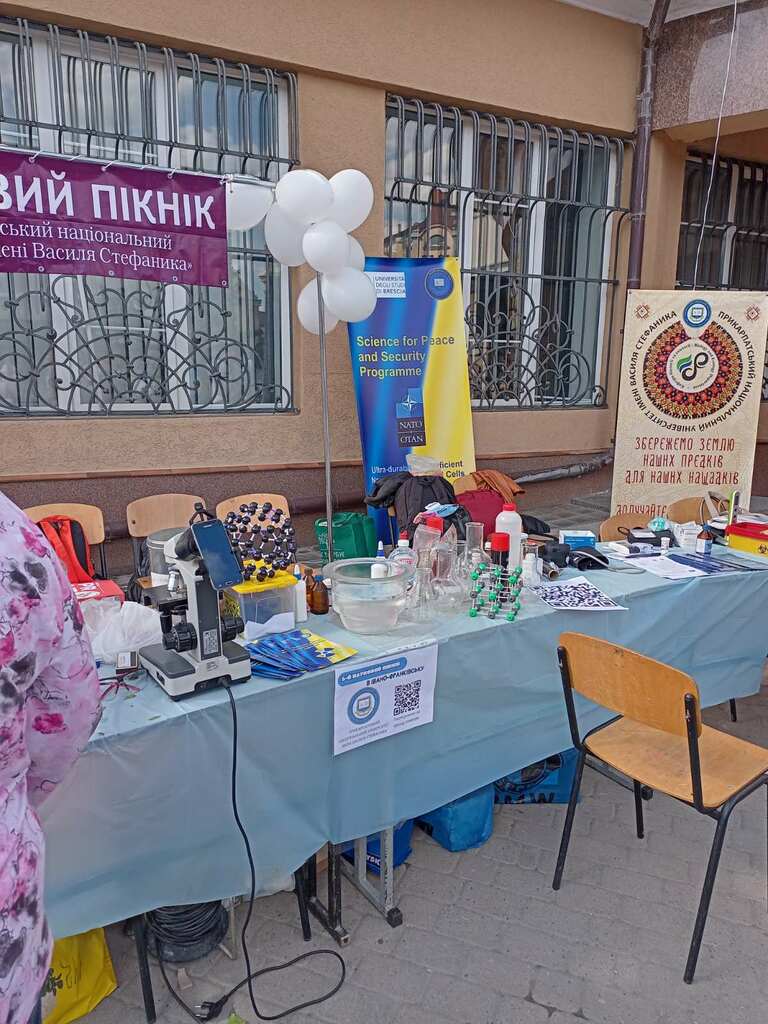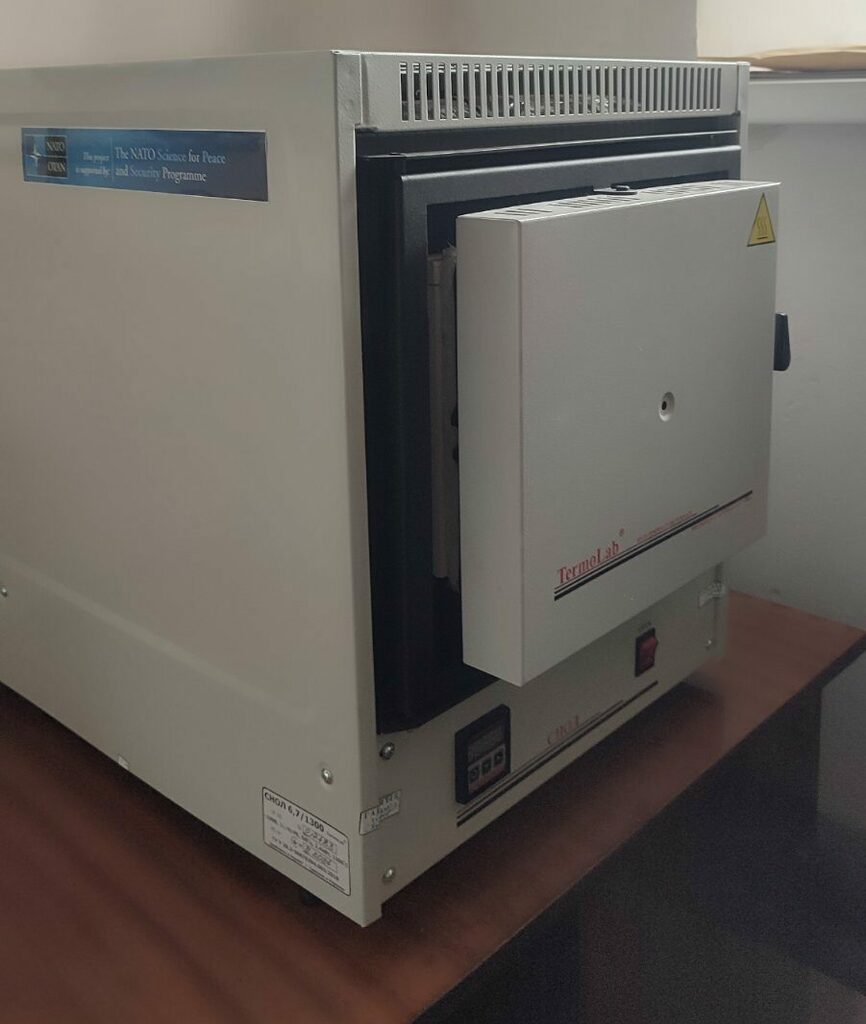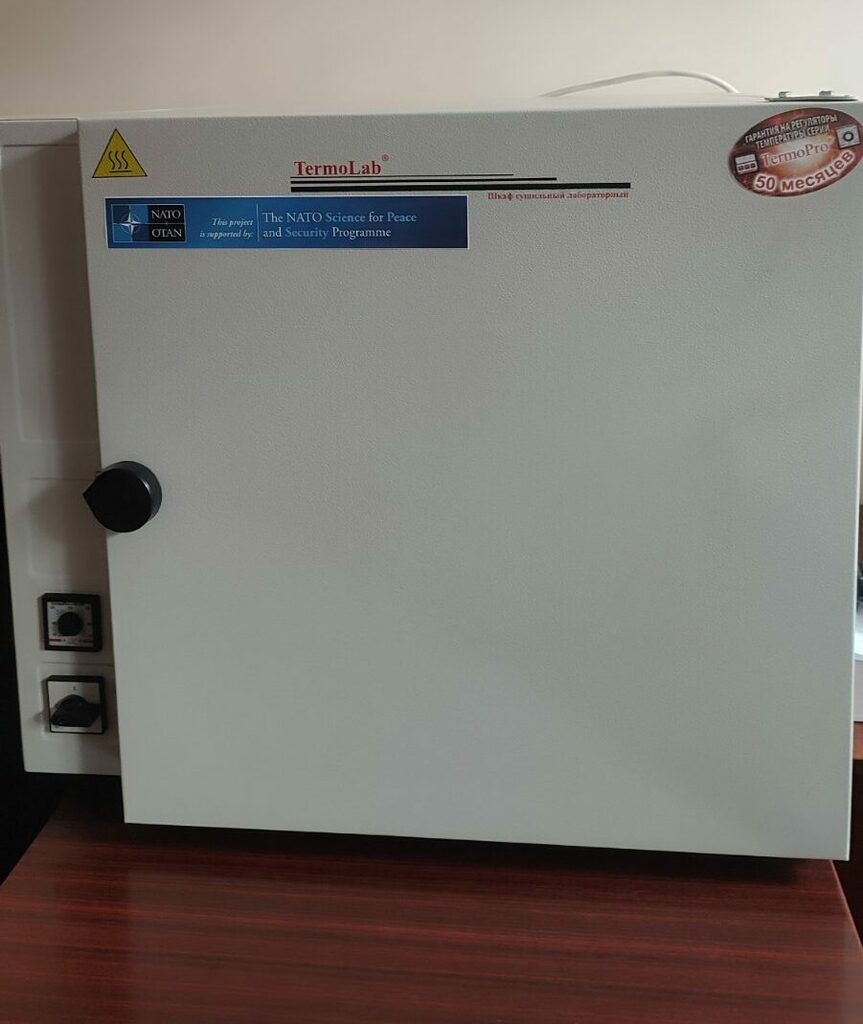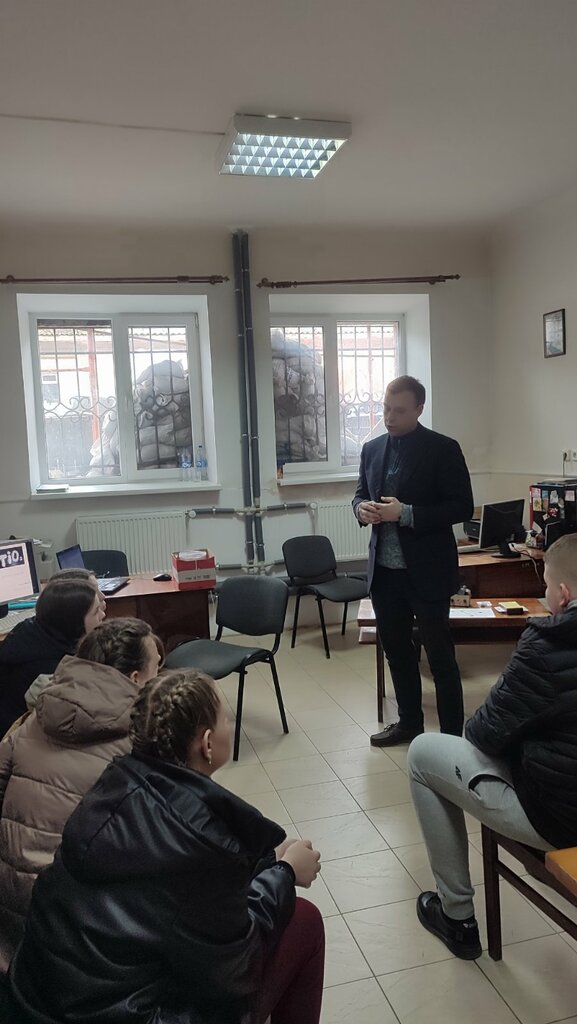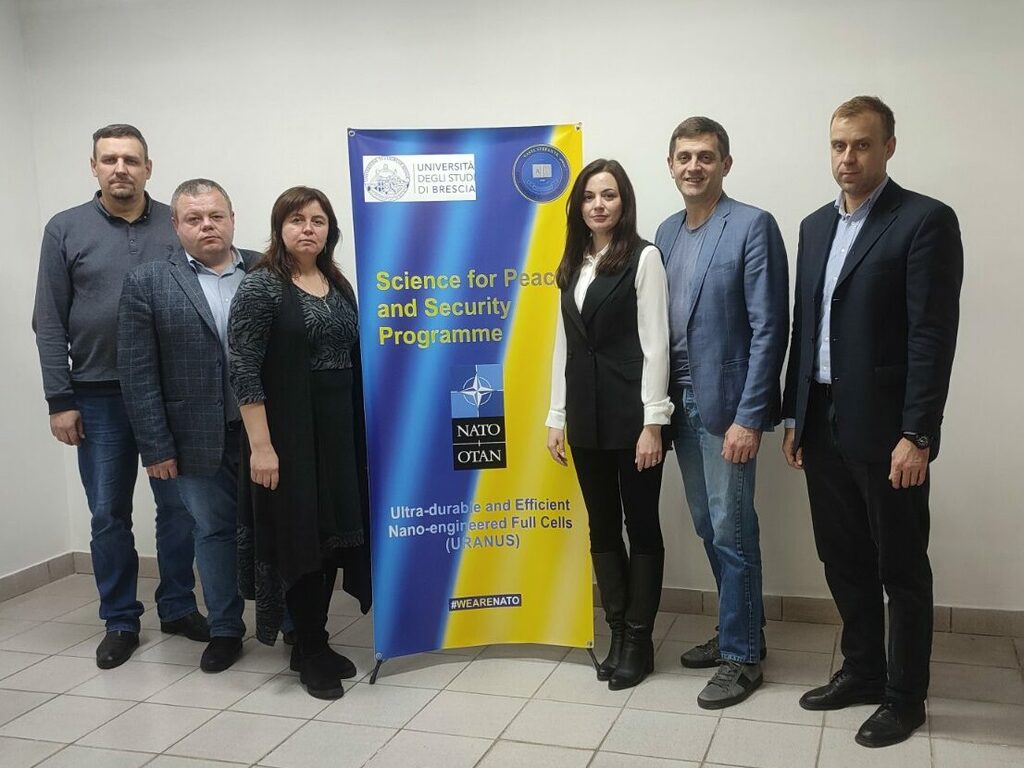Ultra-durable and efficient nano-engineered fuel cells (URANUS).
URANUS aims to investigate and increase the performance of hydrogen solid oxide fuel cells (SOFC), fabricated by using electrodes based on nanoporous and nanodispersed materials. An increase in the power density for SOFC is possible by increasing the performance of single elements in the device, nanostructuring the electrodes to promote faster redox reactions.
URANUS will demonstrate the advantages of nanostructured materials for the fabrication of SOFC. Due to the nano-engineering of both anode and cathode materials, we aim at increasing the performances of SOFC when hydrogen is used as fuel, in terms of conversion efficiency, power delivery, long-term stability and operating temperature.
Scientific seminar
October 17 (Thursday) 12.00
Topic:
“Nanosized lanthanum-strontium manganite with a perovskite structure:
Synthesis, properties, prospects of use”
Reporter:
Ph.D., senior researcher, senior researcher
of the Solid State Chemistry Department of the Institute of General and Inorganic Chemistry
named after V. I. Vernadskyi of the National Academy of Sciences of Ukraine
Julia Shlapa
10.05. 2024
To popularize science among young people, participants of the G6166 project “Ultra-durable and efficient nano-engineered fuel cells (URANUS)”, which is implemented within the framework of the NATO “Science for Peace and Security programme”, took part in the 5-th Scientific Picnic. The event took place on May 10 in the city of Ivano-Frankivsk on the occasion of City Day.
Bohdan Rachii and Pavlo Kolkovskyi together with teachers and students of the Faculty of Physics and Technology of the Vasyl Stefanyk Precarpathian National University introduced the guests of the event to the unique world of science!
According to the result of this day and by the vote of all those willing, the Vasyl Stefanyk Precarpathian National University was recognized as the best scientific location among all those who took part in this popular science event, interesting for children and adults.
20.04.2024.
That is, during the implementation of the project “Ultra-durable and efficient nano-engineered fuel cells” (URANUS) (project number G6166), carried out the framework of the NATO “Science for Peace and Security Programme” and the signed Partnership Agreement between the University of Brescia (Italy) and the Vasyl Stefanyk Precarpathian National University (Ukraine), for the purchase of equipment that will be used for the synthesis protocol of cathode materials for fuel cells. In particular, a muffle furnace SNOL 6.7/1300, a Constant-Temperature Drying Oven SNOL 75/350, professional Balance analysis AXIS ANG220C series with automatic internal calibration, a magnetic stirrer MS7-H550-S and an Acer A5 laptop were purchased for over 200 000 UAH.
15.03.2024.
As part of the Spring School “Physics and Materials Science,” teachers from the Department of Materials Science and New Technologies, along with participants of the G6166 project “Ultra-durable and efficient nano-engineered fuel cells (URANUS),” which is carried out within the framework of the NATO “Science for Peace and Security Programme”, conducted a number of classes and seminars for university applicants. General information about the university, the Faculty of Physics and Technology, educational programs, and scientific events held at the faculty was provided by the Dean of the Faculty of Physics and Technology, Professor Ivan Gasyuk.
Then the applicants were divided into groups and continued to explore the possibilities of physics and materials science in the educational and scientific laboratories of the Department of Materials Science and New Technologies, taking turns moving to different locations. Research staff members Natalya Ivanichok and Pavlo Kolkovskyi worked with applicants at the ‘Sources and Elements of Nutrition’ site. Applicants became acquainted with the construction of supercapacitors, fuel cells, and solar power sources. Laboratory experiments titled ‘Interesting Optical Phenomena’ were conducted by Professor Bohdan Rachiy in the teaching laboratory of optics, where the phenomena of interference and diffraction of light, the application of light polarization, modeling of optical systems, and the study of microscopes, among others, were demonstrated. The meeting was interesting and full of information; the applicants gained a lot of new knowledge, emotions, and unforgettable impressions.
30.01.2024.
According to NATO Letter No. ESC(2023)0285 (SPS MYP G6166) dated 27 October 2023, based on the recommendation by the NATO Security Partnership and Cooperation Committee for the implementation of the research project “Ultra-durable and efficient nano-engineered fuel cells (URANUS)”, which is being carried out within the framework of the NATO “Science for Peace and Security Programme”, and the signed Partnership Agreement between the University of Brescia (Italy) and Vasyl Stefanyk Precarpathian National University, teachers from the Department of Materials Science and Advanced Technologies became participants in this scientific project as part of the research within the framework of project G6166.
04.12. 2023.
The official opening of the International scientific project “Ultra-durable and efficient nano-engineered fuel cells (URANUS)” – G6166, carried out within the framework of the NATO “Science for peace and security programme”, took place.
